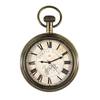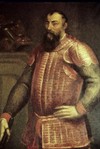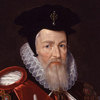Was there a general crisis in government in the last years of Elizabeth's reign, 1589-1603? Flashcards
When did Philip II die?

1598
Before about 1589, Elizabeth’s court and council had been relatively free of faction. What changed?

Between 1588 and 1591, many of Elizabeth’s trusted advisors and courtiers who had served her since the beginning of her reign died. These included the Earl of Leicester in 1588, Walter Mildmay in 1589, Francis Walsingham in 1590 and Christopher Hatton in 1591.
Why did small towns tend to suffer more from the socio-economc problems ofthe 1590’s?
Because they lacked the trading routes and economic wealth ti support their poor in times of hardship.
Although the authorities certainly saw this as a period of crisis, was it?
It is less clear that the socio-economic system was on the point of collapse.
How did more tensions emerge in court in 1597?
Lord Cobham died and the offices he had held became available. These included valuable and influential posts of Lord Chamberlain and the Lord Lieutenancy of Kent. Essex lobbied the Queen on behalf of his follow Robert Sidney, but Sidney was passed over in favour of Cobham’s son and heir.
What was the claim to the throne held by the Infanta Isabella, Spanish Princess and daughter of Philip II?

A very distant one, via John of Gaunt, son of Edward III.
When was Elizabeth persuaded to intervene directly to help the Dutch rebels?

1585
What was the reason for Mountjoy’s generosity to Tyrone when he finally submitted on 30 March 1603?

Elizabeth had died six days before and Mountjoy, who opposed the Cecil faction, was keen to return to England as soon as possible. Mountjoy may therefore have offered the concessions in order to reach a settlement as quickly as could be.
Why were rising prices and food shortages problems particularly severe in the towns?
Because a high proportion of the population were living on or below the poverty line. The situation was made even worse by migration from the countryside, as the rural poor moved to the towns in search of food and jobs. For example, a survey for Ipswich in 1597 reveals that 13% of the population were classed as impotent or able-bodied poor.
In March 1603, Elizabeth entered her final illness. There are conflicting accounts as to whether she finally agreed that James should be the heir, but what really mattered?
That James, a foreigner with a disputed claim, was able to inherit the throne peacefully thanks to the manoeuvrings of a faction who drew their power from their connection to the court, not from their military strength.
Essex tried to court popular opinion as a ‘man of the people’. Why did this get him in trouble?

Sometimes he seemed to be challenging Elizabeth’s own popularity and power.
During the 1590s, it was costing each county 2000 a year to pay for and equip the men who were to serve abroad. What was the result of this.
In Suffolk and Norfolk, these demands led to resistance through non-payment. Other counties could not afford proper equipment for the soldiers, so they were sent abroad not properly equipped, decreasing morale further.
England’s war with Spain (1585-1604) was fought on several fronts. What were these?
English troops were sent to the Netherlands and to France; there were also naval raids against Spain itself and against its shipping in the New World. Spain responded in kinds with several invasion fleets and by intervention in the Irish rebellion against English rule.
How was most of Ireland controlled?

By Anglo-Irish members of the nobility, known as the ‘Old English’, who maintained their own private armies, and acted as quasi-kings in the regions under their control. These men were the descendents of earlier English settlers who intermarried with the native Irish.
Why did English ships’ attacks on Spanish interests on the Iberian peninsula and in the New World have varied success?
Mostly, because the English government did not have sufficient resources to fund them properly, but also because Elizabeth’s cautious approach meant that she was not willing to commit all her forces to an all-out attack.
What did Cecil base his reputation on?

His military prowess; he was prepared to fight duels, built up a military following, and sought military success abroad.
Why was Elizabeth sometimes persuaded to send troops, ships or money to her allies during England’s war with Spain (1585-1604)?
Because her counsellors feared the Spanish Catholic dominance of the entire European coastline from Spain to the Netherlands and the threat of invasion that that would pose to England.
How did the parliaments of the 1590s depart from the role of previous Tudor parliaments?
The behaviour of the commons was more rowdy and needed more careful management by Elizabeth’s councillors, not all of whom had the necessary. It seemed that they and indeed Elizabeth had not realised fully that they were dealing with a group of men who were as convinced of their own rights and privileges as Elizabeth was hers.
When did Henry IV convert to Catholicism and make a truce with the Catholic league?

1593
Although both Elizabeth and her councillors made mistakes in their management of parliament, these were easily solved and were not fatal. How so?
Elizabeth herself was the mistress of skilful speeches, which won the MPs over. Even Robert Cecil contributed to the management of parliament. Like his father, he was able to place 30 of his own clients into constituencies in 1597. These Cecil clients, like the clients of other members of the nobility, could be relied upon to vote the way Elizabeth wanted.
228
2 unpaid overseers were to be elected each year for each parish, with the power to put to work those without money or jobs and supervise the poor house. They were also responcible to assess what more was needed to support the poor, and for collecting and distributing poor relief.
Their work was to be supervised by the JP’s; they were ordered to meet monthly and to submit their accounts to the JP annually.
What made the general feeling of discontect with the power and weolth of the court worse?
The presssures of a big and costy war that lasted for teh final 18 years of her reign. there is some evidence that some localities resented the men, money and equipment they had to give up.
The English attacks on Spanish interests on the Iberian peninsula and in the New World were funded as a joint-stock enterprise, with the queen, members of the nobility and wealthy merchants all contributing to the costs, but all expecting a share of the profits. What did this mean tactically?
It meant that, often, profits were put before strategic advantage.
Though she respected them greatly, Elizabeth was not prepared to give in to all of the demands the Cecil faction placed on her. How so?
Robert was hoping to be appointed as the queen’s secretary, a position left vacant when Walsingham died in 1590. However, Elizabeth left the position vacant until 1596, when Cecil finally achieved his aim.
In Essex’s absence (while he was Lord Deputy of Ireland), what did Robert Cecil ensure?
That all key posts went to him, his friends and his family.
Why was Essex’s campaign in Ireland unsuccessful?
Essex’s own mistakes were partly to blame, but the situation was made worse by the lack of support from Elizabeth’s government.
More seriously than the Cornwall raids of 1595, what happened in regards to England’s war with Spain in 1596-97?
Philip II sent armadas in 1596 and 1597 that got as far as the English Channel, though both were destroyed by bad weather as opposed to English intervention.
When did Philip II die, who succeeded him and did his successor continue the war against England?

Philip II died in 1598, and his successor Philip III did indeed continue the war against England.

How did Elizabeth manage to defuse the monopolies situation in 1597, and what did she get in return from the Commons?
She promised that all monopoly licenses would be examined, and in return the Commons agreed to pass another substantial grant, ironically with much less opposition than in 1593.
What happened to Peter Wentworth (MP for Northampton) when he tried to persuade other MPs to introduce a petition and bill into parliament asking that the queen decide the royal succession?
The Council heard about what he was planning and arrested him and his allies. He was sent to the Tower, where he died four years later.
Some monopolies were relatively uncontroversial because they were the Tudor equivalent of a patent, Which monopolies caused complaints?

Those that Elizabeth granted to her courtiers for profit. Walter Raleigh, for example, had monopolies in tin, playing cards and the Licensing of Taverns. The System became corrupt because people made huge profits for themselves by raising prices. Because they had the monopoly on a product, there was no competition, so monopolies forced prices up. At a time of social and economic hardship, the price rises were particularly damaging, especially when commodities such as steel and salt were affected.

214
Crime rates raised in the 1590s, leading to more prosecutions in the law courts. In particular, the rate of theft rose considerably in the years 1596-98, probably as a result of social and economic hardship. It is likely that many of these thefts were a result of a genuine need for food and clothes, and were impulse crimes.
What were the two main sides to the factions that developed in the 1590s?
They coalesced around William Cecil and his son Robert on one side, and Robert Devereux (Earl of Essex) on the other.
How was the Spanish war effort, like the English one, coming under increasing strain?

Philip was attempting to fight wars on three fronts, and this led to the overextension of his resources. Spanish troops in the netherlands mutinied every year from 1589-1602, and Spain actually went bankrupt in 1596.
Why did late lizzy local Govt work effectivley?
Because Elizabeth appoimnted the same people to positions of command locally as she did to her privy council. Even though she outlived all of her most trusted advisors, the system she had created continued to work because local and cdntral Govt were linked together in men such as the Cecils.
In 1595, what happened in regards to England’s war with Spain?
A small Spanish force of about 400 men actually made a series of landing raids in Penzance (Cornwall), though they fled at the news that a fleet under Drake was approaching.
Why did their process of raising concerns about government policies not mean that the Commons was hostile to or even wanted to challenge royal power?
As long as Elizabeth listened and was seen to respond, there would be no crisis. In 1597 and 1601, the queen came close to misjudging the Commons’ mood, but she had the political awareness to stop the serious complaints in these parliaments from becoming anything worse.
229
the impotent poor were to recieve relief either in their own homes or in Almshouses, the able bodied poor were to be given work in poor houses, while persisant vagrants and beggars were to be sent to the houses of correction.
In 1599, Elizabeth was forced to sent the largest army of her reign to deal with the Irish revolt. Led by Essex, the army had 16,000 infantry and 1300 cavalry. How did Essex fail miserably in his mission?

He spent the summer moving through Leinster and Munster with his army without bringing Tyrone to battle. He only marched north when Elizabeth angrily ordered him to do so. Even then, he made a truce with Tyrone, instead of fighting him. Essex then deserted his post to rush back to England and justify his actions to the queen.
How did the queen’s management of the faction situation at court undoubtedly make it worse?
Her refusals to make decisions regarding key appointments led to more faction-fighting, not less. She was also prepared to tolerate Essex’s angry outbursts and sulking because he flattered and amused her. At the same time, she allowed patronage to come under the control of just one group- the Cecil faction.
In regards to resentment at court, how did faction contribute to a sense of crisis in the 1590s?
In that it created political instability and a noble revolt.
The Oxfordshire rising and the riots of 1595-96 were the result of discontent among the lowest in society; they were not joined by those of higher rank. What did this mean?
This meant that the riots lacked leadership and were easily suppressed, though they certainly frightened the Govt into taking action.
Why was James VI viewed as the best candidate for the throne by many?

He was Protestant, which for the Protestants in England meant that he seemed the best candidate to protect their interests. James’ supporters also argued that Henry VIII’s will was not valid because it was stamped with the dry stamp rather than signed personally.
The parliament of 1597 saw much more serious criticism of Elizabeth’s government- what in particular?
The abuse of monopolies.

What was the negative result of Elizabeth’s reluctance to commit a large amount of money and men to any one military campaign?
The English though achieving several important victories, were never able to retrain the upper hand over sp;ain, She ensured that England did not lose, but also that it could not win, so the war dragged on.
What was the social and economic situation before the 1590s?
Before, there had been a period of relative social and economic stability with mostly good harvests. The population, which had declined in the worst years of death and disease in the 1550s, had recovered and was growing again. Although hunger and poverty were still very real problems, the relative stability of the first three decades of Elizabeth’s reign had given local authorities the opportunity to stockpile foods.
For those with little to no income, what did the price rises of the 1590s mean?
They struggled to buy the basic foods that they needed for survival, especially since the value of real wages was falling. In 1597, they reached their lowest level for any year between 1260 and 1950 according to the Phelps-Brown index.
As the price of wheat soared in the 1590s, those who could not afford it began to buy other, cheaper, but less edible grains, such as barley, oats, peas and beans. What was the result of this?
This pushed up demand for these products as well, leading to further price rises.
Elizabeth remained unmarried and childless, with the issue of who would succeed her becoming increasingly prominent in court politics as time moved on. Why did she refuse to name a successor, even on her deathbed?
Because she feared that he or she would become a figurehead for plots against her.
In 1595, Henry IV of France rallied French nationalism by declaring war on Spain. How did this help England?

Because it meant that the balance of power in Europe was restored and the Spanish were now fighting a united France.
In 1601, the queen and the Council were alerted to Essex’s plans and Elizabeth demanded that the earl come to court and explain. How did Essex respond?
He felt that revolt was the only option, taking hostage the four councillors who were sent with the Queen’s message. With about 140 followers, he marched towards London where he hoped to get support from the trained bands and popular support. When this failed, he returned to Essex house.
Why were the only real supporters of the Infanta Isabella as a candidate for the English throne the Jesuit Priests?
Moderate English Catholics did not support the Infanta’s claim because they hoped to get more religious toleration by accepting a Protestant monarch: James.
How did ‘Commonwealth men’ make the 1601 parliamentary situation worse?
They burst into the parliament lobby and stairs to beg MPs to do something about the abuses of monopolies.
What was Essex’s grave mistake in 1599?
In September 1599, he left Ireland and returned to England, explicitly disobeying Elizabeth’s orders. He burst into the Queen’s privy chamber where he found the Queen only just awake and not ready to receive visitors.
When did Henry IV become king of France?

1589
What did the fact that Elizabeth was persuaded to intervene directly to help the Dutch rebels signal?
The English entry into war with Spain, which would last until 1604.
How did Elizabeth keep Essex under close control?

Though a member of the nobility, he was not well off, and he was reliant on the queen for enough patronage to support himself and his followers. Crucially, he always remained reliant on the queen for his power and influence; he did not have the resources to build up a following in the localities and his power was based at court.
What was unusual about the participants in the 1601 parliament?
It contained 253 barristers or gentry educated at the Inns of Court, the highest number of lawyers in any Tudor parliament. These men were not only well versed in legal procedure, they had also come across the problems caused by monopolies in the law courts, where those with grievances against the monopolies were unable to get justice. In addition, at least 157 MPs in this session of parliament had also been present in 1597, and were therefore likely to be sympathetic to complaints about monopolies.
Which dangerous historical precedent did Essex use to support his actions?
It was arranged that the Lord Chamberlain’s company would perform Shakespeare’s ‘Richard II’, which is the the story of how a tyrannical king was deposed by his cousin Bolingbroke. The deposition scene in the play had already been banned as too politically sensitive, but the performance went ahead and included the forbidden scene. Essex was sending out that he, like Bolingbroke, was justified in his actions. He was also implying that Elizabeth, like Richard, was surrounded by favourites who gave her false advice.
How did Robert Cecil mishandle the 1601 parliamentary situation?
The Crown only wanted the grant of subsidies, not to discuss other issues. Cecil told parliament that he wanted ‘no fantastic speeches or idle bills’, which was not what the angry MPs wanted to hear.
Though England did not lose the war to Spain, how was the war still detrimental to economy and society as a whole?
The longer the war dragged on, the more damage it did to England’s economy and society, as the escalating costs both in terms of money and loss of life led to increasing discontent and criticism of the regime.
In 1598, Elizabeth suggested that the Essexian William Knollys should be appointed Lord deputy of Ireland, but Essex suggested the Cecilian George Carew instead, probably in an attempt to remove him from Court. What did this lead to?
This led to a full-blown argument in the Privy Council. Essex turned his back on Elizabeth, she slapped him and Essex put his hand on his sword as if to draw it. The Earl of Nottingham had to intervene and Essex withdrew in a rage, with the parting shot that he would not have taken such an insult from any monarch, even Henry VIII.
Why did the English government have a difficult relationship with the Old English?

Because, while some were happy to cooperate, others resented English attempts to extend control throughout Ireland, and rebelled. Elizabeth had already faced rebellions in Munster in 1569 and 1579.
In contrast to the failed 1589 naval mission to Spain, some missions were successful, such as the mission led by the Earl of Essex as a joint mission with the Dutch to attack Cádiz in 1596. What happened during this?

Two Spanish ships were destroyed, two were captured and Cádiz itself was captured temporarily.
Why were there further tensions in Parliament in 1593?
Because. before parliament even met, Peter Wentworth (MP for Northampton) had tried to persuade other MPs to introduce a petition and bill into parliament asking that the queen decide the royal succession.
Why was the growth of Spanish dominance in Europe (aided by Spain’s annexation of Portugal in 1580) an issue contributing to the Anglo-Spanish conflict?
Because it threatened the balance of power.

223
The books were documents that were sent to all JP’s telling them what actions they should take in the event of plauge or famine, for plauge, they were to quarantine houses where there was disease; these houses were to be guarded by watchmen to ensure the sick remained in isolation. in the event of famine, JP’s were ordered to make searches for grain (in a attemt to combat food hoarding), and set up the compulsary sale of food to those in need. In times of real shortage,however, it is unlikely that these measures were particulary effective, especially as there was simply not enough food in circulation.
Like James VI, Arabella Stuart was descended from Margaret Tudor, and had been brought up in England. Why did the Cecils favour her cousin James?

Perhaps because she had Catholic sympathies.
Why, in the early 1590s, did Tyrone’s relationship with the English government become tense?

Because O’Neill felt under threat from the growing number of English Protestant colonists in Ireland who threatened to encroach on Ulster from the south, and he wanted Elizabeth to grant him the right to rule Ulster. Elizabeth would not agree.
Why was the fact that Parliament raised concerns about government policies and appeared to be, on occasion, challenging the prerogative not an issue?
Because this was a traditional part of monarch-parliament relations. Part of parliament’s role was to act as a safety value for local grievances. In airing these grievances, Parliament was notifying the queen to potential sources of tension before they could escalate.
What was the result of the fact that England’s war with Spain (1585-1604) was fought on several fronts?
England’s resources were stretched to their limits, which in turn led to problems for Elizabeth’s domestic government with both parliament and the rule of the localities.
225
It ordered that vagrants be arrested, whipped and returned to their parishes were they were to be forced to work if they were able bodied or sent to the almshouse if they were impotent poor. Persistant vagrents were to be sent to the houses of correction or even to work on the English galley ships.
the final punishment was to be executed to felony.
What was the social and economic situation in 1597?
It had deteriorated; the war with Spain was continuing, bringing increased fears of invasion, and Tyrone’s rebellion in Ireland had broken out.
What other than the succession issue divided factions at court?
Obviously religion, but largely the war with Spain; what tactics to follow and even whether to continue fighting.
It is easy to overstate the case for the instability caused by faction; for example, Essex and the Cecils were both reliant on the queen to some extent for her favour and patronage. What did this mean?
She could have withdrawn her support for them at any time, as she did with Essex, leaving them without the source of their power, office and position at court. The fact that the nobility were now reliant on maintaining a presence at court in order to secure power and influence meant that their traditional feudal and military roles had been almost entirely undermined.
Elizabeth was persuaded by her counsellors to give both financial and military aid to both Henry IV of France and the Dutch. What was given as aid?

She set £35,000 to Henry IV in 1589 and another £10,000 in 1590. She sent 4000 troops to France in 1589, another 3000 to Brittany in 1591, and another 5200 in 1592-93. A further 3000 troops were sent under the Earl of Essex to besiege Spanish-held Rouen in 1591. At the same time, English troops under the command of Sir Francis Vere were helping the Dutch rebels.
By the 1600 expiry of Tyrone’s truce with Essex, who had Elizabeth replaced Essex with?

Charles Blount (Lord Mountjoy) at the head of a force of 13200 men.

Why were the MPs angered when Cecil told them that they needed to rethink the amount they were prepared to offer in 1593 in terms of tax?
Because they believed that the house of Commons should have sole rights to grant taxation, as they represented the majority of the taxpayers.
Edward Seymour (Lord Beauchamp of Hache) was descended from Catherine, daughter of Frances Grey, but why wasn’t his claim secure?
His mother had married without Elizabeth I’s permission, and her marriage had been annulled, technically making Seymour illegitimate.
Essex himself was a Lord Lieutenant, and he attracted at least 12 deputy Lord Lieutenants into his faction. However, what was he crucially lacking?
He did not have the support of his fellow Lord Lieutenants, who were ultimately in charge of military musters. The Cecils, meanwhile, used their influence to gain supporters both in the Council and in the key positions in the Council of the North, which enhanced their military support base
The Social and economic problems of the the 1590’s were,in some ways,very serious for Elizabeths Govt, how so?
At a time of war and high taxation, the spread ofriots and discontent made the authoroties worry that society would break down and the poor would rise up against the rich.
The demands of war led to tensions within local government; local officers were put under increasing pressure by the central government to meet its demands. Between 1585-1603, 105,810 men were forced into military service. Some local officials began to resist government demands, though their resistance was passive, not violent. Give an example of this.
By 1592, local landowners were resisting attempts to send the county trained bands abroad. The bands were experienced, but because of their training it was felt that they should be used for national defense instead. The bands were often from those of higher status such as yeomen and artisans who could avoid conscription. The deputy lieutenants of Essex admitted that they were substituting men of lower status for those in the bands who had been chosen to serve abroad.
When was the third Spanish Armada?
1597
Boosted by large forces, Tyrone was able to take on the English army. What was his first major victory?

In 1598, he won a major victory over the English at the Battle of Yellow Ford where around 830 English troops were killed and 400 wounded.
Tyrone arrived at Kinsale in December 1601 with an army of 6500. Thinking he would be able to defeat the English, who were trapped between the Spanish and the Irish, Tyrone prepared for battle. What went wrong?

Mountjoy launched a surprise attack before the Irish forces were ready. The battle at Kinsale was the last of the rebellion, as Tyrone retreated to Ulster and January 1502 the Spanish troops finally surrendered.

Why was the anger of the Commons in 1601 made worse to the point that some MPs were prepared to introduce a parliamentary bill to restrict the royal prerogative on the issue?
They had seen that petitioning the queen in 1597 had made no difference.
Despite Essex’s claims, Cecil also supported James’ succession. Why did he?
Because it was the best means to secure his own political future.
What happened in regards to Tyrone’s revolt in 1601 before December?

Tyrone was saved by the arrival of the Spanish troops that had been promised in 1597. 3400 highly trained Spanish soldiers landed at Kinsale, bringing with them siege guns. Mountjoy was forced to besiege the Spanish at Kinsale using 7000 men, but this freed Tyrone to march south to join his allies, gathering reinforcements as he went.

Between 1600-03, Cecil was in secret correspondence with James. Why could he not support him openly?

Because Elizabeth would not commit herself; he could not risk her anger.
Although the levels of hardship were not felt as severely in all parts of the country, some areas such as the rural uplands of the north and south west suffered disproportionately, what happened there?
it was in these regions that there was genuine death and starvation.
Even worse than suspension from his offices after his 1600 trial, how did Elizabeth punish Essex?

She refused to renew his monopoly on sweet wines and Essex rapidly fell into debt.

Wat shows that , dispite the negative, the case fora crisis in Govt 1589-1603 can be overstated?
There was no major popular regellion in the 1590’s dispite the severity of the economic conditions, Though there was discontent raised, Govt did not stop, and nor did the leadersor local society reberl against Govt demands.
What would have happened if Mountjoy’s army had been defeated at Kinsale?

ireland would have fallen under the control of a large and united Catholic Spanish and Irish force, which Philip III could have used as a base either for further operations against the English navy in the Atlantic or, even worse, from which to invade England.
Why did it worry the Govt that rioters looked back to KEtt’s rebellion as an inspiration?
Because Kett’s rebels had targeted their social superiors.
Which circumstances made it unsurprising that Elizabeth’s later parliaments were tension-filled, thus giving the impression of crisis?
The social and economic crisis that had a profound effect in England from the 1590s on the moods of both ordinary people and the MPs who feared the effects of increasing and incessant taxation on a country that was already stretched to its limits and the continuation of the war with Spain and the start of Tyrone’s revolt (which meant that Elizabeth remained reliant on parliament for grants of taxation) while the demands of war created additional tensions in the localities.
Why, in 1589, did Philip II decide to get directly involved in the French Catholic league rather than simply subsidising it as he had been doing before?

In 1589, the Protestant Henry of Navarre became King henry IV of France. By intervening directly in the French Catholic League, Philip hoped to help them defeat Henry IV, who was allied with the Dutch Protestant rebels and with England.
Essex planned another campaign against Spain in 1597, but this was unsuccessful and led to the Queen’s displeasure. Essex, meanwhile, was angered by the promotion of Charles Lord Howard, another Cecil supporter, to the rank of all of Nottingham. Why was he angry and how did he react?
According to the rules of precedence, this meant that Howard now outranked Essex. Essex, as a member of the traditional nobility, was furious and challenged the earl to a duel before withdrawing from court in a rage.
What in particular created tension in 1597 and 1601?
Resentment over monopolies and Elizabeth’s and Robert Cecil’s handling of complaints in Parliament.

What was the consequence of the Europe-wide bad harvests?
In some regions there was famine; other regions saw severe food shortages and riots, especially in urban areas. Death rates rose and the government feared that the social order would collapse.
The Govt’s fear in 1590 of rebellion like Kett’s was more due to rumour and paranoia than genuine risk. What was thef inportant difference between the problem of 1549 and the 1590’s?
The Wealthier husbandmen ( farmers with small landholdings) who might once have sided with the rebels had become more prosperousand better educated, tending to participate in locat Govt rather than rise up against it.
In some ways, how did the war against Catholic Spain and in support of the Protestant Dutch and French Kings help England?
They helped to increase English patriotism and a feeling that God was looking favourably on English Protestants by granting them victories. Individual triumphs such as that of Essex at Cádiz were greeted with celebrations and have English propagandists plenty of ammunition for their anti-Catholic, anti-Spanish campaigns.
Access to the queen was vital in the faction leaders’ attempts to get key appointments for their followers. Elizabeth’s natural cautiousness meant that she was often reluctant to commit herself, but what did this only lead to?

More pressure being applied by those who wanted her favour and patronage.
What did the fact that the Cecils competed with Essex for power and influence and access to patronage cause?
This led to rival groupings forming at court, which was the centre of power and patronage because it allowed access to the queen




































































